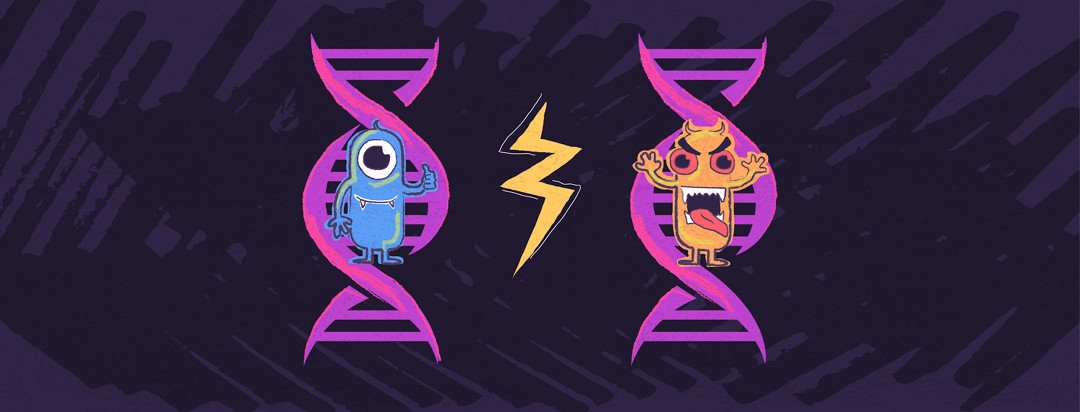ATM Mutation, Part 1
I've never met anyone diagnosed with breast cancer who didn't, at some point, wonder about the cause or origin of their cancer. Could it be related to choices made by the patient? Could cancer be caused by lifestyle choices? Food? The environment? Birth control? Fertility treatment? GMOs?
The short answer is that no one knows, even though trolls on the internet might attempt to convince all of us otherwise.
What caused my cancer?
I've seen some statistics that demonstrate that around caused and the remaining vast majority have no known cause.1
When a cancer patient begins to explore the cause of their cancer and, genuinely, rejects the premise that they are somehow responsible, what then does that patient do?
I am not sure what the answer is for anyone else, but for me, the realization that the ATM mutation is throughout my family was both helpful in that I didn't continue to wonder about my role in causing my cancer and also caused a crushing amount of angst. Not only would I leave my children motherless, but I could also actually be part of the reason they die young. And it's unethical for me to have them undergo genetic testing.
Say what!?
Impact of ATM mutation throughout the family
I'm still flabbergasted about that, but I'm still trying to wrap my head around this diagnosis and what it means for my family as a whole.
During this series on the ATM mutation, I will be interviewing members of my family who are dealing with the ATM mutation in various ways. My mother is a 16-year breast cancer survivor and recently found out that the ATM mutation came through her side of the family. My father, a pastor and licensed mental health counselor has weathered the experience of breast cancer in a variety of forms.
I have been living with stage 4 metastatic breast cancer for 2 years and my sister, only 18 months younger than I, is a previvor who chose a prophylactic double mastectomy just this year. Of our remaining 4 siblings, the two others who have been tested are negative. 2 of our brothers have yet to be tested.
Between the 6 of us so far, my parents have 5 grandchildren.
So what happens in a family when cancer is such a presence that it feels like a foregone conclusion? This is what I want to explore.
Genetic testing
For me, I had been living with the diagnosis of stage 4 metastatic breast cancer for only a few months when the expanded genetic panel was finally performed. I had been tested for BRCA 1 & 2 early on and when those were negative, we moved on and didn't question it.
When we understood that my cancer would be more aggressive than we'd initially thought, my medical oncologist decided to be more thorough. When the report came back positive for ATM, that created quite the stir.
We now understand that ATM is linked with a variety of different types of cancer: breast, ovarian, pancreatic, prostate and, likely colon. The ATM gene is generally responsible, in part, for assisting with the repair of damaged genes.
When there is a mutation of the gene that is responsible for repairing mutated or damaged genes, it doesn't take a rocket scientist to conclude that that is a recipe for disaster. There are also significant risks for children when both parents carry the ATM gene. When we found out, we got my husband tested right away.
Thankfully my husband tested negative for any gene mutations, so my boys have just the 50 percent chance that I gave them the ATM mutation, not the extremely high risk of childhood cancer. Silver linings to be grateful for.
What's next?
Understanding that the protocols, for now, are simply monitoring my family and continuing with my own treatment, I have started to gather information and written out what I want my boys to know.
The sad fact of the matter is that because they are 6 and 4, I probably won't be alive to talk to them about the ATM mutation when they turn 18 and could choose to get tested.
As a mom, I know how devastated I am that I could have passed along such a difficult thing to my children. How much worse is it for the rest of my family?
Stay tuned for the answers I will explore further.
Editor's note: Please check out the other 3 articles in this ATM mutation series, Part 2: An Interview with My Sister, Part 3: Spouses, and Part 4: An Interview with My Dad.

Join the conversation